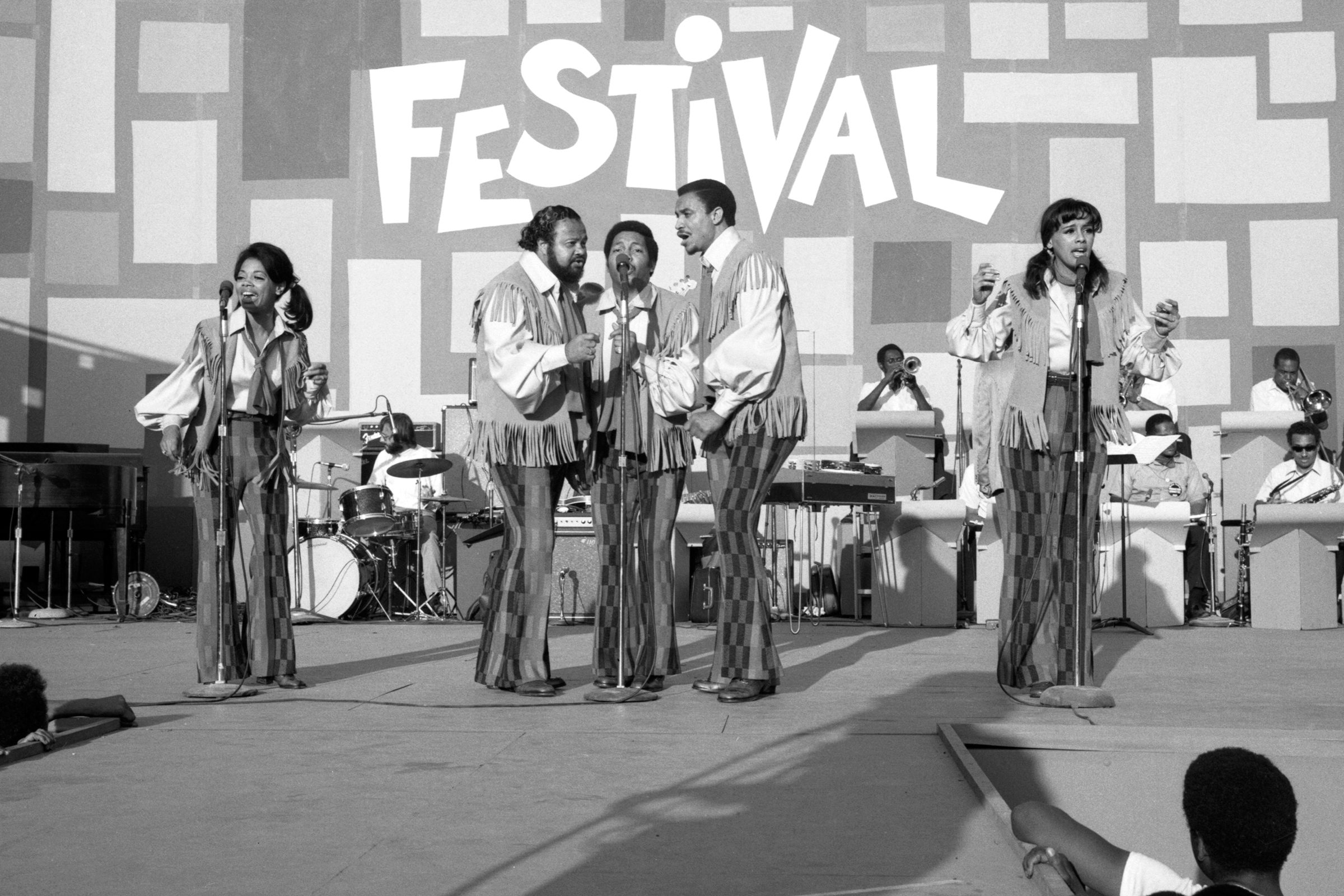
It was summer 1969. Mount Morris Park. Harlem, New York. A sea of thousands of people gather in fellowship to celebrate their music and culture. With a star studded line up, good food and great energy, the Harlem Cultural Festival was something to be in awe of.
There were 5 different weekends of this festival, all of which had different genre focuses. There were artists who sang soul, the blues, pop, gospel, jazz and carribbean/afro-latinx music.
The gospel acts were adored at the festival. Gospel music channels the emotional core of black people and their experiences. Our expression in gospel music stems from spirit possession which can be traced to Africa. In the film they called it “an eruption of spirit to arrive at an inner peace” that we received from being able fully express ourselves. The church has been a cornerstone and rock for the community especially during times of political and social strife like the times displayed in these times. Some of the gospel artists were Pops Staples and the Staples singers, Mahalia Jackson, the Edwin Hawkins Singers, and Professor Herman and the Voices of Faith.
The 5th dimension, a group not defined by any genre, was an important addition to the festival lineup they brought a sound that was not commonly associated with black people. They had elements of pop and broadway tunes in their music. Music, just like many other things was still segregated in a sense. I feel that they really expressed the power of music by using it as a toll to bring people together and make people happy.
R&B and Soul music were also very prevalent at the festival. Iconic acts such as Stevie Wonder, David Ruffin (of The Temptations), Gladys Knight and the Pips and Sly and the Family Stone all took the stage. BB King represented for the blues, while Herbie Mann represented for Jazz. Mongo Santamaria and Ray Baretto displayed the diversity and merging of cultures within Harlem with their afro-latin beats.

This was a tumultuous time due to the amount of death during the decade in terms of social justice leaders. John F. Kennedy, Malcolm X, Martin Luther King Jr., Robert “Bobby” Kennedy. The black community was also dealing with the loss that came with the Vietnam War, which many Americans felt was an unnecessary war.
There were riots in Harlem in the summer of 1968 after MLK’S death and the organizers of this festival did not want a repeat of that. They wanted to use this festival as a way to bring people together through music and the culture to take the attention away from the violence on people’s mind due to the day’s political tension.
“How can you be an artist and not reflect the times?”- Nina Simone
Because of the plight of black people in this country, almost everything we do can be deemed political. There is definitely a political aspect of this festival. As I stated before, the 1960s was a roller coaster for the black American, and people were angry. The festival was created to focus on the positives of being black and being proud of the culture. I saw this as a sneak peek of how the 70s music scene was- everything was a party. But people who attended the festival could feel the cultural and political significance of it. The moon landing happened during this festival and many attendees were not concerned with it. While whites were celebrating America’s achievement, the black people struggling in Harlem were wondering why more money is being spent on sending a man to the moon than alleviating poverty on the ground that was plaguing the community. The artists who performed felt how important this event was for not just Harlem but black Americans in general. They helped foster a sense of pride and hope for the future. In this way, the music and the politics could not be separated.

Login to your account